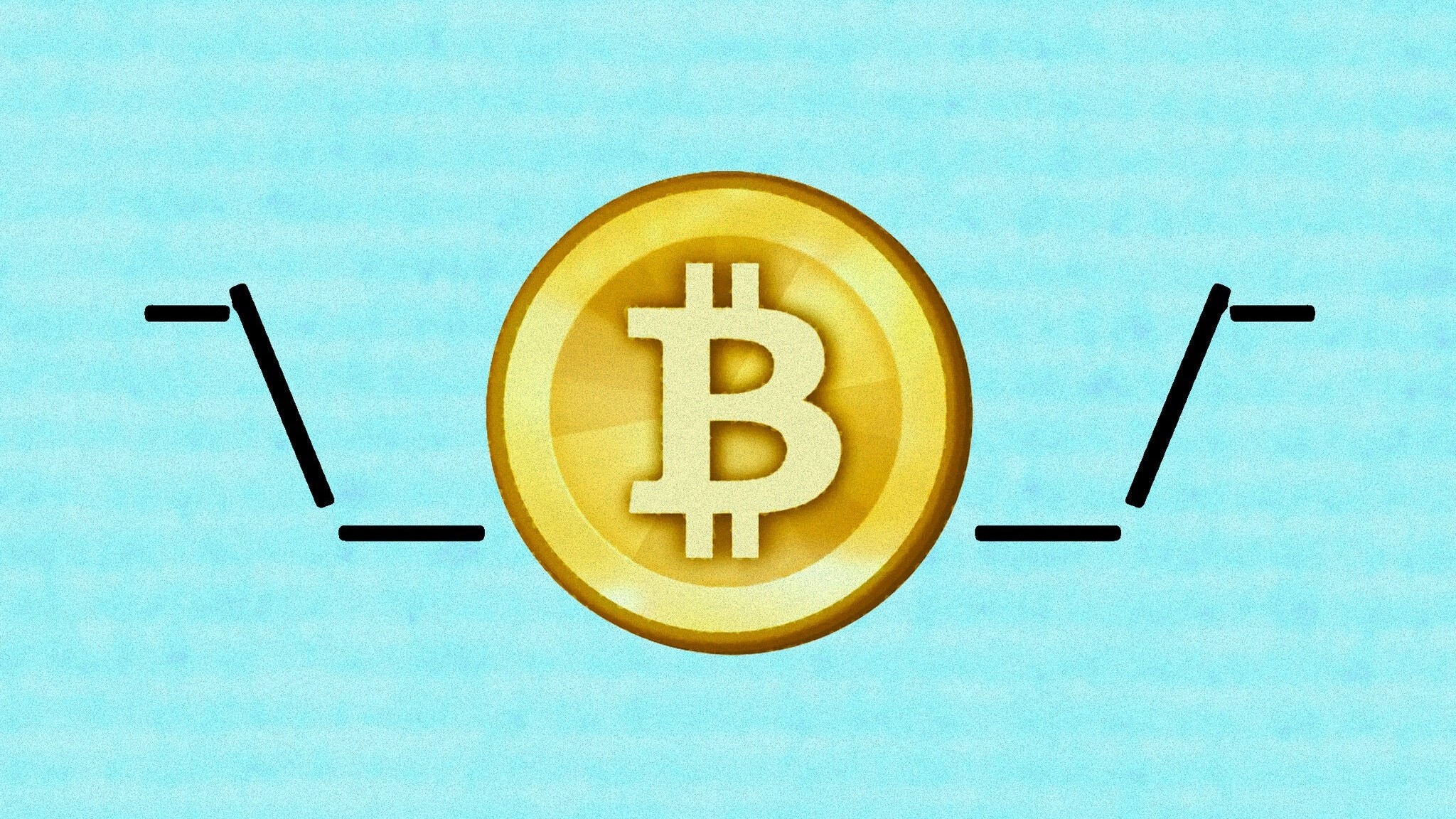Every morning, we run The Narrative Machine on the past 24 hours worth of financial media to find the most on-narrative (i.e. interconnected and central) stories in financial media. It’s not a list of best articles or articles we think are most interesting … often far from it.
But for whatever reason these are articles that are representative of some sort of chord that has been struck in Narrative-world.
May 7, 2019 Narrative Map – US Equities

May’s Market Outlook: It’s Too Quiet Out There [The Street]

Investment markets can be confusing. To try to cut through the chatter and investment slang, we present this monthly view to you. We want to give you a 50,000-foot view of market conditions updated as our view evolves. Currently, our Investment Climate Indicator remains at Stormy. Stormy means that bear market rules apply, and we believe could be a period of wealth destruction.

I used to watch Ernest Angley on Sunday morning TV in Birmingham, Alabama. Laying on hands, curing the sick, healing the lame … I’d call him a Raccoon, but somehow that seems too kind. A raccoon’s raccoon.
Buffett is no raccoon. He’s a Coyote. A coyote’s coyote, even. But there was something about this picture that triggered me.
I haven’t made the hajj to Omaha yet.
As for The Street … raccoons just as far as the eye can see.
Vanguard Fund Investors Get Control of Paying Taxes [Bloomberg]

Ever wonder why you don’t ever get hit with a year-end taxable gain from ETFs like you do with mutual funds?
But thanks to an obscure loophole in the tax code, ETFs almost always avoid incurring taxable gains.
The rule says that a fund can avoid recognizing taxable gains on an appreciated stock if the shares are used to pay off a withdrawing investor. The rule applies to both ETFs and mutual funds, but mutual funds rarely take advantage of it because their investors almost always want cash.
ETFs use it all the time, because they don’t transact directly with regular investors. Instead, they deal with Wall Street middlemen such as banks and market makers. It’s those firms, not retail investors, that expand the ETF by depositing assets or shrink it by withdrawing. These transactions are usually done with stocks rather than cash. The middlemen, in turn, trade with regular investors who want to buy and sell ETF shares.
Trading with middlemen presents ETFs a tax-cutting opportunity. Whenever one of these firms makes a withdrawal request, an ETF can deliver its oldest, most appreciated stocks, the ones most likely to generate a tax bill someday.
If the ETF wants to cut its taxes further, it can generate extra withdrawals just to harvest the tax break. A heartbeat is when an ETF asks a friendly bank or market maker to deposit some stock in the fund for a day or two, then take different stock out. Some critics call these trades an abuse of the tax code. But with the help of heartbeats, most stock ETFs, even ones that change holdings frequently, are able to cut their capital-gains taxes to zero.
Now Vanguard is using the same in-kind redemption / heartbeat trade to avoid taxable gains on most of their mutual funds.
How? By pairing the mutual funds with a sister ETF where they can do these legal (for now) variations-on-a-wash-trade.
But wait, there’s more. They’ve filed a patent on this.
So amazing that I’m not even mad.
This is the ET note on Vanguard. It’s a good read.
Why Investors Love Singapore’s Struggling Malls [The Straits Times]
Singaporeans aren’t spending like they used to, at least not in malls. There are too many already, and more are being built. But investors still have good reasons to back mall owners.
The city state has 6.1 million sq m of retail space, of which 8.7 per cent is vacant. Yet, companies are forecast to add a further 364,000 sq m, with the biggest chunk hitting the market this year. This is when online shopping is catching on, retailers such as Crabtree and Evelyn are closing physical stores, and rents are scraping the bottom.
Two years ago, the median tenant was shelling out $9.76 per sq m in the main shopping district of Orchard Road, when the going rate for category 1 offices was $8.65. Now, office rentals have zoomed to $10.18 – 30 cents more than top-grade retail space – while prospects for a spending recovery aren’t great. CapitaLand Mall Trust, the island’s biggest shopping mall landlord, classifies its tenants in 17 categories, out of which 11 – including supermarkets and department stores – saw sales fall for the first quarter from a year earlier. Telecommunications, home furnishings and music and video led with big double-digit declines.
Okay, I give up. What is the good reason for investors to back Singapore mall REITS?
Paradoxically, real estate investment trusts (Reits) that own malls are outperforming the benchmark Straits Times Index. Interest rates may be a part of the story. With global rates expected to stay lower for longer, a 5 per cent dividend yield on CapitaLand Mall’s shares implies a near 3 percentage point spread on 10-year Singapore government bond yields.
Wheeeeee!
As Public Pensions Pile on More Risk, Returns Don’t Follow [Bloomberg]
Pro-tip: when a financial reporter uses the phrase “so-called alternatives” in the lede, it’s always a train wreck.
TA Associates Closes Thirteenth Flagship Private Equity Fund with $8.5 Billion of Commitments [Press Release]
TA Associates,a leading global growth private equity firm, today announced the first and final closing of TA XIII with total commitments at its hard cap of $8.5 billion. Launched in the first quarter of 2019, TA XIII was oversubscribed and exceeded its original $7.5 billion target.
Wheeeeee!
Blackstone Hires Goldman Alum for New Social Good Initiative [Bloomberg]
Blackstone Group LP hired Tanya Barnes, a former managing director at Goldman Sachs Group Inc., to lead a new impact investing strategy, as pension plans and other institutions seek to put money into more businesses with social and environmental benefits.
Blackstone’s impact initiative will fall under its Strategic Partners group, run by Verdun Perry, and focus on investments advancing health and well-being, financial access, sustainable communities and green technologies, according to the New York-based firm. Along with direct investments, the strategy will include co-investing with other managers making socially conscious bets, Barnes said.
Ah, to live in a world where the phrase “socially conscious bets” can be uttered without a shred of embarrassment. Glorious!
Trump’s Tariff Tweets Do the Markets a Big Favor [Bloomberg]
President Donald Trump’s threat on Sunday to levy additional tariffs on Chinese goods because of the slow pace of trade talks sent the S&P 500 Index down by as much as 1.61 percent before it recovered to end lower by a less jarring 0.45 percent on a report that a delegation of Chinese officials still plan to travel to Washington this week to talk trade. The initial decline was painful, for sure, but cathartic as well, in that it should act as a sort of reset and make the market healthier following a nearly unimpeded trek upward this year.

I wonder if today was a “healthy pause”, too.
Every now and then my old firm would hire an analyst who would tell me that he was “glad” the stock we owned (and he covered) was down, because now “we could buy more”.
There’s only one proper response to this.
“Not counting today, how long have you worked here?”


Start the discussion at the Epsilon Theory Forum